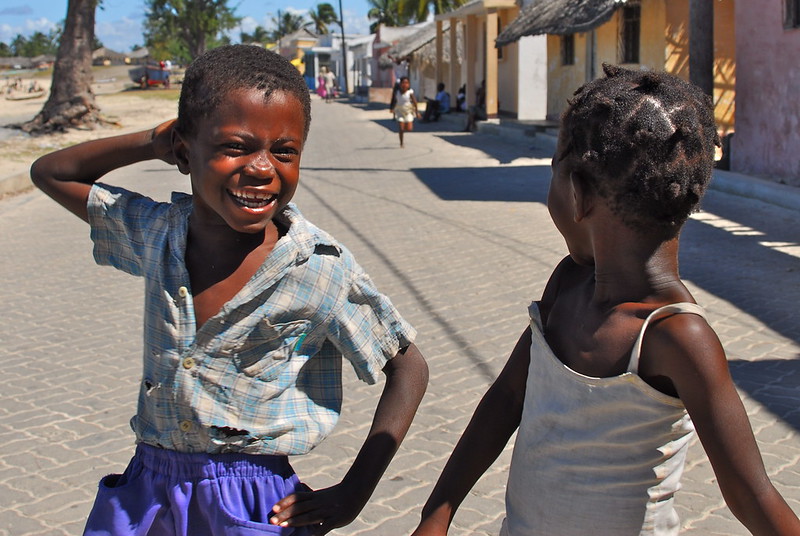Reducing Child Poverty in Mozambique
 Poverty and health issues share a link. Where one exists, the other is not far away. However, since 2002, organizations like the Global Alliance for Vaccines and Immunizations (GAVI) have addressed this link through national immunization campaigns. The following is an overview of how health organizations are working to reduce child poverty in Mozambique.
Poverty and health issues share a link. Where one exists, the other is not far away. However, since 2002, organizations like the Global Alliance for Vaccines and Immunizations (GAVI) have addressed this link through national immunization campaigns. The following is an overview of how health organizations are working to reduce child poverty in Mozambique.
About Poverty in Mozambique
Mozambique is one of the poorest countries in the world, ranking 180 out of 189 countries in the UNDP’s 2019 Human Development Index ranking. Recurring natural disasters and conflict exacerbate the issue of poverty in Mozambique. Cyclones from the Indian Ocean cause regular destruction, drought is becoming more pronounced in the southern provinces due to climate change and insecurity in Cabo Delgado Province has displaced nearly a million people, including women and children.
Providing basic health services and humanitarian assistance to those in need is therefore challenging and many are lacking access to clean water, food and sanitation. As a result, many face the prospect of becoming ill from malnutrition and disease. Cholera infections are rising, as are occurrences of polio and measles, disproportionately endangering vulnerable groups like women and children.
Why Disease and Poverty Share a Link
Poverty does not only cause poor health, but it is also a consequence of it. By increasing the chances of poor health, disease traps communities in poverty and makes breaking free of its constraints difficult. For example, in countries like Mozambique, tropical diseases kill and weaken many because they are unable to generate an income. Alternatively, others have to care for sick relatives. As a result, instead of going to school, many children enter the labor market at a young age to support their families and their lack of education means they face a future of low-paid/low-skilled jobs.
Health Programs Reducing Child Poverty in Mozambique
Immunization and vaccine programs have been a cornerstone of global public health policy since 1974. These programs have sought to give children the best possible start in life by making them less susceptible to the risks of disease. The most famous of these is the Expanded Program on Immunization (EPI).
Because of many African countries’ high rates of child mortality due to diseases like measles, tuberculosis and neonatal tetanus, the EPI is a crucial part of the health care strategy for Africa. With countries like Mozambique having little money to fund public health programs, the EPI is a cost-effective intervention.
Currently, the program has evolved into what is commonly known as the Essential Programme on Immunization. With nearly every country today having a national immunization program, it highlights the belief that vaccines are one of the safest and most cost-effective public health strategies for preventing death and improving the lives of Mozambique’s children.
Organizations Helping Deliver Immunization Programs in Mozambique
Immunization programs like the EPI are a truly international effort. While guidelines and policy are written by the World Health Organization (WHO), its implementation is undertaken by several actors, including national governments, WHO, UNICEF, the World Bank, the Bill and Melinda Gates Foundation, the vaccine industry, public health institutions and non-governmental organizations.
Collectively, these actors form the Global Alliance for Vaccines and Immunizations (GAVI), which aims to provide children worldwide with access to vaccines, helping fight infectious diseases and reduce poverty.
GAVI works by providing a forum for partners to identify key issues and coordinate responses to outbreaks. It uses funds to strengthen immunization services and vaccination programs in countries that require assistance through a special financial mechanism called the Vaccine Fund. This fund receives commitments from wealthy nations like Norway, the U.K., the U.S., the Netherlands, Denmark, Sweden and the private sector.
Since 2002, health organizations have been working to reduce child poverty in Mozambique with assistance from GAVI. GAVI importantly has supported the country’s Ministry of Health in providing effective immunization services against several preventable diseases.
Currently, Mozambique is considered an example of the EPI’s success, having achieved several significant milestones. With many rural provinces now having immunization coverage rates of more than 95%, children are given a significant weapon to protect their future health and also escape disease-associated poverty traps.
The government, with GAVI’s help, has implemented a vaccination catch-up plan for children who missed shots due to COVID-19. They have also successfully coordinated responses to recent cholera outbreaks and rolled out the first phases of a measles-rubella vaccination campaign.
On December 10, 2023, the member organizations of GAVI returned to Mozambique to renew their commitment to the country’s immunization program following its success. In a statement, David Marlow, CEO of Gavi, said: “Gavi and Alliance partners reaffirm commitment to support Mozambique’s immunization efforts. The upcoming official visit presents an opportunity for sustained engagement, detailed conversations and the strengthening of our partnership towards our shared vision: a well-resourced and effective immunization program that improves health outcomes for the people of Mozambique.”
Looking Ahead
In the efforts against poverty, one effective approach is safeguarding children from the long-term social and economic impacts of diseases. Organizations like GAVI provide successful immunization strategies, which serve as valuable tools for governments in their fight against illnesses. These efforts not only save lives but also create opportunities to break free from the cycle of poverty associated with diseases. This exemplifies the work of health organizations striving to reduce child poverty in Mozambique.
-Cameron Mason
Photo: Flickr
